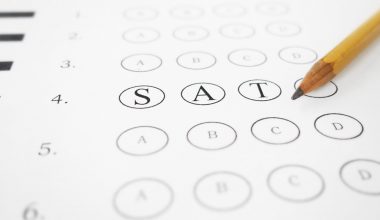Dreaming of a career in real estate? Maybe you love helping people find their perfect home, or you’re fascinated by the world of property and investing. That’s awesome! But before you start showing houses and collecting those commission checks, there’s one important step: passing the real estate exam.
Studying for exams can feel overwhelming, but it doesn’t have to be! This article is your friendly guide on how to study for a real estate exam in 2024. We’ll break down everything you need to know, step-by-step.
We’ll start by understanding exactly what the exam is all about – how many questions you’ll face, what kind of questions they are, and how much time you’ll have, as well as everything else you need to know.
Table of contents
Studying for a Real Estate Exam
Studying for a Real Estate Exam entails a comprehensive and diligent approach to mastering the intricacies of the real estate industry. This process involves immersing oneself in key concepts such as property law, finance, contracts, ethics, and regulations.
It requires a thorough understanding of the legal frameworks governing real estate transactions, property valuation methods, and investment analysis. Additionally, prospective test-takers must familiarize themselves with industry-specific terminology, market trends, and professional standards.
Dedication and discipline are important as candidates engage in rigorous self-study, review practice questions, and seek guidance from experienced mentors or study materials.
By embracing this multifaceted approach, aspiring real estate professionals can confidently prepare themselves for success in their Real Estate Exam and pave the way for a rewarding career.
Read: How To Study For a Math Test in Less Time | 2024 Timetable, Schedules
What is the Best Thing to Study for a Real Estate Exam?
When preparing for a Real Estate Exam, it is essential to prioritize certain key areas for effective study. One of the most crucial aspects to focus on is property law and regulations, as they form the foundation of real estate transactions. Understanding legal frameworks, contracts, and disclosure requirements is paramount.
Additionally, comprehending finance and investment analysis concepts will enable you to evaluate property values, calculate returns, and analyze market trends. Familiarizing yourself with ethical considerations and professional standards is equally important to ensure ethical behavior in real estate practices.
Finally, practicing with sample exam questions and simulations can enhance your test-taking skills and confidence. By devoting adequate time and attention to these core subjects, you will be well-prepared to excel in your Real Estate Exam and thrive in the dynamic real estate industry.
How Long Do Most People Study for Real Estate Exam?
The study duration for a Real Estate Exam can vary depending on individual circumstances and prior knowledge of the subject matter. Most people dedicate several weeks to several months of focused study.
This extended timeframe allows candidates to thoroughly grasp the extensive content and intricacies of the real estate industry. The comprehensive nature of the exam, which covers property law, finance, contracts, ethics, and regulations, necessitates sufficient time for acquiring and retaining knowledge.
Furthermore, aspiring real estate professionals often incorporate practice exams and review sessions into their study schedules to assess their understanding and identify areas for improvement.
Investing an adequate duration in preparation ensures a solid foundation of knowledge, boosts confidence, and maximizes the chances of success in the Real Estate Exam.
See the Top 10 Toughest Exams in the World
What to Expect in a Real Estate Exam
In a Real Estate Exam, you can expect a comprehensive assessment of your knowledge and understanding of various aspects of the real estate industry. The exam typically consists of multiple-choice questions, although some jurisdictions may include additional question formats like true/false or matching.
You can anticipate being tested on property law, finance, contracts, ethics, regulations, and professional standards. Questions may cover legal terminology, property valuation methods, agency relationships, disclosure requirements, and ethical considerations in real estate transactions.
The exam evaluates your proficiency in applying real estate principles and concepts to practical scenarios. It is essential to come prepared with a solid understanding of the key subject areas and to be familiar with local laws and regulations.
How to Study For a Real Estate Exam
Here’s how to study for a real estate exam:
Understand the Exam Structure and Content
Begin by familiarizing yourself with the exam structure, including the format, number of questions, and time limits. Review the exam syllabus or content outline to understand the topics covered.
Create a Study Plan
Develop a structured study plan that outlines your daily or weekly study goals. Allocate dedicated time for each subject and focus on areas where you need more improvement. A well-organized study plan will help you stay on track and efficiently use your study time.
Gather Study Materials
Collect reliable and comprehensive study materials, such as textbooks, online resources, practice exams, and study guides. Ensure that the materials align with the content and format of the specific real estate exam you will be taking.
Break Down the Content
Divide the subject matter into smaller, manageable sections for easier comprehension. Take one topic at a time and thoroughly understand the underlying concepts before moving on to the next.
Take Notes and Create Summaries
Take detailed notes and create summaries for each topic while studying. Writing down key points helps reinforce your understanding and serves as a useful reference during revision.
Use Practice Exams
Practice exams are invaluable for assessing your knowledge and familiarizing yourself with the format. Take advantage of practice exams to simulate real test conditions and identify areas that require further study.
Review and Reinforce
Regularly review the material you have covered to reinforce your understanding. Focus on areas of weakness and revisit them to ensure comprehension and retention.
Also, see: How To Study With ADHD In Less Time | 2024 Timetable, Schedules
Seek Additional Resources and Guidance
If you encounter challenging topics or concepts, seek additional resources or consider consulting experienced real estate professionals or tutors for guidance. Joining study groups or online forums can also provide opportunities for discussion and clarification.
Simulate Exam Conditions
As the exam date approaches, simulate exam conditions by taking timed practice tests. This helps build confidence, improve time management skills, and familiarize yourself with the pressure of the actual exam.
Stay Consistent and Take Care of Yourself
Maintain a consistent study schedule and prioritize self-care. Get sufficient rest, exercise, and eat well to keep your mind sharp and focused during preparation.
Want to take an English test? Check out Duolingo English Test : Eligibility, Syllabus, Result, Exam Dates, Fees Registration, and Score Requirements
How to Pass a Real Estate Exam
To excel in a real estate exam, do the following:
- Understand the exam requirements and structure.
- Create a study schedule and stick to it.
- Review and understand key real estate concepts.
- Utilize practice exams and sample questions.
- Seek guidance from experienced professionals or mentors.
- Take advantage of study materials and resources.
- Focus on areas of weakness and review them thoroughly.
- Stay calm and manage test anxiety.
- Practice time management during the exam.
- Read and analyze questions carefully before answering.
- Review your answers before submitting the exam.
- Stay updated with current laws and regulations.
- Take care of your physical and mental well-being during the preparation period.
- Stay positive and maintain confidence in your abilities.
Also, see: How To Study For Finals In Less Time | 2024 Timetable, Schedules
FAQs
The study duration varies, but most individuals dedicate several weeks to several months of focused study, depending on their prior knowledge and the complexity of the exam.
Reliable study materials such as textbooks, online resources, practice exams, and study guides specific to your real estate exam are highly recommended.
A Bachelor’s Degree in Real Estate or a related field such as Finance or Economics is often considered beneficial for pursuing a career in the real estate industry.
Conclusion
Studying for a real estate exam requires dedication, thorough preparation, and a comprehensive understanding of key concepts. By following a structured study plan, utilizing practice exams, and seeking guidance when needed, you can equip yourself with the knowledge and confidence necessary to excel in your real estate exam and embark on a successful career in the industry.
References
- carealtytraining.com – Pass the Real Estate Exam with These 10 Study Tips
- theclose.com – How to Study for the Real Estate Exam: Tips & Strategies
- homecoachschool.com – Tips for Passing the Real Estate Exam
- aceableagent.com – How to Study for Your Real Estate Exam
- agentrealesttaeschool.com – Study Tips for the Real Estate License Exam





